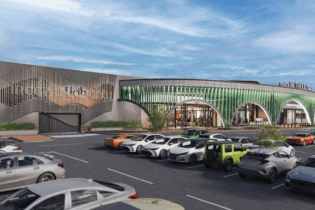African governments must include the private sector in design and policy decisions concerning proposed infrastructure development, the Infrastructure Africa conference in Johannesburg heard on 10 July.
This means providing a “reliable” and “predictable” business environment with minimal bureaucracy, while acknowledging no single balance sheet is big enough to fulfil Africa’s infrastructure needs on its own. The conference also heard public-private partnerships across the continent need to become part of mainstream dialogue, but private sector participation could not be solely profit-driven, and must broadly help benefit social development. “The key message to governments — economic growth, jobs and incomes are created by the private sector,” Shem Simunyemba, chief infrastructure economist at the African Development Bank, said yesterday. He said building infrastructure was a “partnership” requiring dialogue and participation. African countries were among the least competitive in the world, and lack of infrastructure was estimated to sap African gross domestic product (GDP) by 2% a year. Keynote speaker, South African Minister of Energy Dipuo Peters, said yesterday SA was committed to African development. “No infrastructure programme can be done effectively unless it is linked to regional integration and continental development,” she said. The African Development Bank expected Africa’s GDP to grow by 6.2% over the next 20 years. This amounted to a six times increase in GDP by 2040, with per capita incomes of Africans reaching about $10,000 a year. South African President Jacob Zuma was a key driver of the Programme for Infrastructure Development in Africa to 2040, for which $360bn has been budgeted by the African Development Bank. Energy and transport infrastructure were key, along with development of water resources, information technology, health and education. Minister Peters said social imperatives, including broad service delivery to Africa’s poorest, was fundamental to this. She said in this regard, SA was championing a north-south corridor between itself and countries up to Tanzania.Minister Peters also said “clean-coal” technology, natural gas, and nuclear energy, would be critical components of Africa’s energy future, along with hydropower and other renewables, as part of diversification to a lower carbon economy.
She said nuclear energy was the cheapest, most reliable and cleanest form of available energy, and that it was important for Africans to discuss their uranium reserves in this regard. “We cannot allow this emotive debate (over nuclear energy) to stop growth,” she said. She also said she wanted SA to continue exploring the viability of “fracking”, and if it was found to be “safe”, then used to benefit the continent. About 42% of Africans lacked access to modern energy sources, meaning $25bn a year was needed to cater for African energy demands to 2030. Minister Peters acknowledged the urgency of both African and SA’s energy needs, and said funding would come from sources including the African Development Bank, the World Bank and private sector. However, she also acknowledged SA needed an effective and streamlined regulatory environment, along with enabling infrastructure. Lynette Chen, CEO of the Nepad Business Foundation, said yesterday government shouldered a lot of the responsibility to provide basic infrastructure, but that policy-makers struggled when it came to implementation. “In a lot of African countries there is no private-public partnerships legislation,” she said. There had been calls to set up a continental-scale implementation agency to deal with policy and matters of regulation, including harmonising tariffs and visa controls. allixm@bdfm.co.za Source: Business Live





